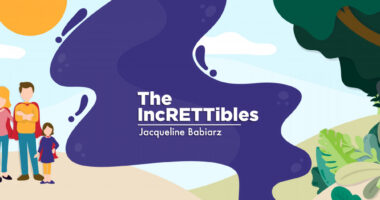How I’m Making My ‘One Foot In, One Foot Out’ Life Work This Summer

For parents of neurotypical children, summer should be easy, busy, and carefree.
They might take their kids to the pool and watch them jump off the diving boards, zip down the waterslides, and splash in the water while parents sit nearby on lounge chairs.
Parents might look out the window and see their kids having water balloon fights or whizzing down a Slip ‘N Slide with the neighbors.
They’ll possibly arrange a car pool for various camps or take daytrips to Six Flags Great America.
They might host pizza nights in the backyard as their children’s friends jump on the trampoline and play Ghosts in the Graveyard.
Their children might walk downtown with friends to play mini-golf and eat ice cream.
Endless ice pops, watermelon slices, and smiles should be what summer is all about for a child.
My neurotypical 10-year-old enjoys this kind of picturesque summer. But for Cammy, my 12-year-old with Rett syndrome, summers are not idyllic, easy, or carefree.
None of the above is possible for a child with special needs without a parent (or an aide hired on our dime) by her side at all times, helping her to participate in everything. We are tied to schedules for feeding, changing, nebulizer and oxygen treatments, and private therapies. We are bound by temperature regulations, respiratory restrictions, and sleep deprivation.
Thus, I live in a “one foot in, one foot out” world.
Nineteen half days of summer school provide some relief as a caretaker. I know Cammy is learning, socializing, and receiving physical therapy, occupational therapy, and assistive technology therapy. During those three hours, she’s getting more stimulation than I could provide at home. And she’s happy!
Last summer, pools were closed due to COVID-19, which meant Cammy’s favorite camp was closed. This summer, pools are open, but the special needs organization that hosts summer school is unable to extend the day by taking the campers swimming.
Before the pandemic, Cammy would get on the bus for summer school, and then the swim camp bus would take her to the pool, where an aide would meet her to swim. Cammy got to swim at the public pool with her peers, not her mom. She was in heaven.

Photo by Jacqueline Babiarz
Our annual last day of school photo. Cammy, left, finished sixth grade and Ryan completed fourth grade.
So, how do we do summer? I plan for one outing a day. I save all theater movies for the end of summer when I’m completely exhausted.
Current activities include going for a walk, a bike ride, or a swim; finding an accessible park; visiting cousins; going to the library for new books; and lying in a hammock and listening to Andrea Bocelli. These are not exactly things a 12-year-old has on a summer bucket list, but it’s what my back will allow me to do with my daughter who is wheelchair-bound.
I’ve let go of most of the guilt and pressure regarding my daughter’s schedule. I used to spend hours planning adaptive activities, only for her to express total dissatisfaction within two minutes. I would feel so defeated. It was not sustainable for me mentally, emotionally, or physically.
I have accepted that it is OK to simply snuggle with her under our shaded porch watching a show if that makes her happy. I just follow her lead.
Read more about Cammy’s story at our blog, “Cammy Can Reverse Rett.”
***
Note: Rett Syndrome News is strictly a news and information website about the disease. It does not provide medical advice, diagnosis, or treatment. This content is not intended to be a substitute for professional medical advice, diagnosis, or treatment. Always seek the advice of your physician or other qualified health provider with any questions you may have regarding a medical condition. Never disregard professional medical advice or delay in seeking it because of something you have read on this website. The opinions expressed in this column are not those of Rett Syndrome News, or its parent company, Bionews, and are intended to spark discussion about issues pertaining to Rett syndrome.







Leave a comment
Fill in the required fields to post. Your email address will not be published.